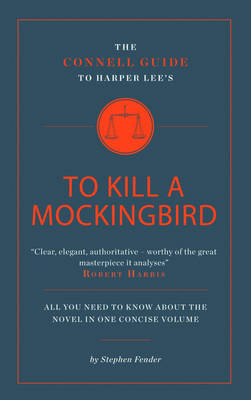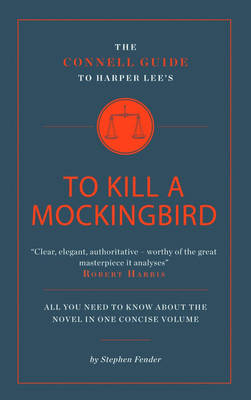
- Retrait gratuit dans votre magasin Club
- 7.000.000 titres dans notre catalogue
- Payer en toute sécurité
- Toujours un magasin près de chez vous
- Retrait gratuit dans votre magasin Club
- 7.000.0000 titres dans notre catalogue
- Payer en toute sécurité
- Toujours un magasin près de chez vous
12,95 €
+ 25 points
Description
Within two years of coming out in 1960, To Kill a Mockingbird had been translated into ten languages, won the Pulitzer Prize, and been made into an Oscar-winning film. It spent an astonishing 88 weeks on the American bestseller lists. But while acclaimed by critics it also attracted attention of a different kind. Like The Catcher in the Rye (1951), that other bestseller about childhood, Mockingbird was widely banned from local libraries and school curricula from the 1960s through to the 1980s. One early reviewer called To Kill a Mockingbird "a wholesome book on an unwholesome theme". Those charged with the care of the youth were hypersensitive about what the fictional young should be made to see and hear in novels: words like "damn", "piss", "whore lady" - and (as with Huckleberry Finn) "nigger" - even though in the context of a critique of racial prejudice. But the objections went beyond words alone. The story of children being confronted by a rape case seemed inappropriate in a book to be read by real-life children. So did the book's portrayal of "institutionalized racism", as one group of protestors in Indiana put it, "under the guise of 'good literature'". In this compelling guide, Stephen Fender looks at why a novel which has been called a "period piece" remains so popular - and examines what it tells us about racism and indeed about the nature of humanity.
Spécifications
Parties prenantes
- Auteur(s) :
- Editeur:
Contenu
- Nombre de pages :
- 128
- Langue:
- Anglais
- Collection :
Caractéristiques
- EAN:
- 9781907776120
- Date de parution :
- 01-09-18
- Format:
- Livre broché
- Format numérique:
- Trade paperback (VS)
- Dimensions :
- 109 mm x 173 mm
- Poids :
- 136 g

Les avis
Nous publions uniquement les avis qui respectent les conditions requises. Consultez nos conditions pour les avis.






